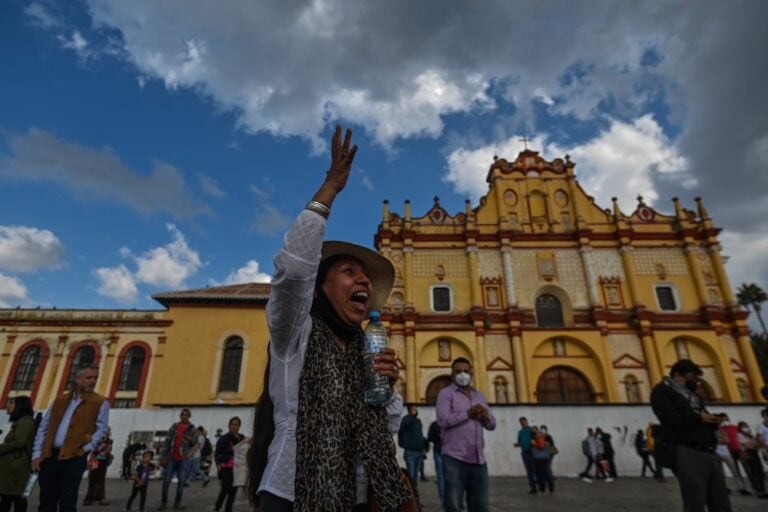After the September 2014 disappearance of 43 students, the human rights crisis in Mexico came to a head in 2015. Following the patterns of previous years, the crisis extended to the realm of digital and Internet rights.
This statement was originally published in Spanish on derechosdigitales.org on 23 December 2015.
By Gisela Pérez de Acha*
Mexico is currently experiencing a serious human rights crisis. The tendency, similar to all regimes with authoritarian leanings, is toward controlling expressions of dissent. With incidents ranging from assassinations of journalists to attempts to control the Internet via international treaties, 2015 was fraught with controversy.
In February, ruling party legislators brought forward a bill known as the Beltrones 2 Law: an initiative to reform industrial property and copyright laws in order to stop or hinder violations of intellectual property rights in the digital environment. The initiative, which was closely aligned with the requirements of the Trans-Pacific Partnership Agreement, was overly protective of intellectual property monopolies, threatened the privacy of Internet users and established disproportionate and excessive penalties.
In July, 400 GB of information from the Italian company Hacking Team were made public. It was revealed that the Mexican government is the company’s most important spying software client, with various government bodies making purchases totalling 5,808,875 Euros. In most instances, the purchasers do not have legal authority for espionage activities. Such is the case with Mexico’s state oil company, Petróleos Mexicanos (PEMEX), or the Baja California Planning and Finances Ministry. Moreover, as a result of the leaks it was revealed that the program was being used to spy on journalists and political opponents.
Then, as if this had not taken place, in October Mexico City hosted the ISS World Latin America conference, a large exhibition of companies like Hacking Team and FinFisher. The purpose of the conference is marketing of these companies’ “products”, along with the provision of training to government officials on the use of their programs. The city government provided all the facilities for this surveillance exhibition to take place.
The month of October also brought with it one of the most difficult to accept news items affecting human rights, with the announcement of an end to the negotiations for the Trans-Pacific Partnership Agreement. The negotiations for this international treaty were entirely undemocratic and opaque, and the resulting agreement threatens everything from media access to freedom of expression and Internet privacy rights.
Then, in November, the annual meeting of the Open Government Partnership, an association that promotes “openness” in government practices, was held in Mexico City. Demonstrations were held by civil society organisations and individuals, pointing out the contradiction presented by this event: it is impossible to govern openly with the high levels of opaqueness, impunity and corruption demonstrated by the Mexican government. The use of technology cannot sufficiently conceal highly ingrained practices that run contrary to openness and transparency.
Also in November, social media traffic exploded when Senator Omar Fayad (of the Institutional Revolutionary Party, PRI) brought forward a bill on cybercrime. The bill, known as the Fayad Law, was characterized by some as the “worst bill on Internet governance in history”. Had the bill been passed, it would have provided the army and police with more surveillance powers, prohibited the creation of new software coding and criminalised the activities of whistleblowers and those who post critical content on social media sites, among other issues. Although the bill was scrapped, a dangerous intent to regulate the use of technology remains.
Finally, to close the year, Facebook Free Basics launched in December, in collaboration with mobile operator Virgin Mobile. The platform provides restricted access to a group of 38 applications selected by Facebook, with no data charges for users. This program is problematic as it involves content discrimination and a violation of net neutrality principles, while also representing consolidation of a business model that makes use of personal data and government indifference.
The background provided by 2015 does not bode well for 2016. Nevertheless, the work of persuading the Mexican government and legislators to make serious commitments regarding personal liberties and rights, both in the analogue and digital world, must continue. And perhaps next December we will be able to report on positive experiences and leave behind a human rights crisis that the Internet has not been saved from thus far.
*Gisela Pérez de Acha is a public policy analyst for Derechos Digitales (Digital Rights)


